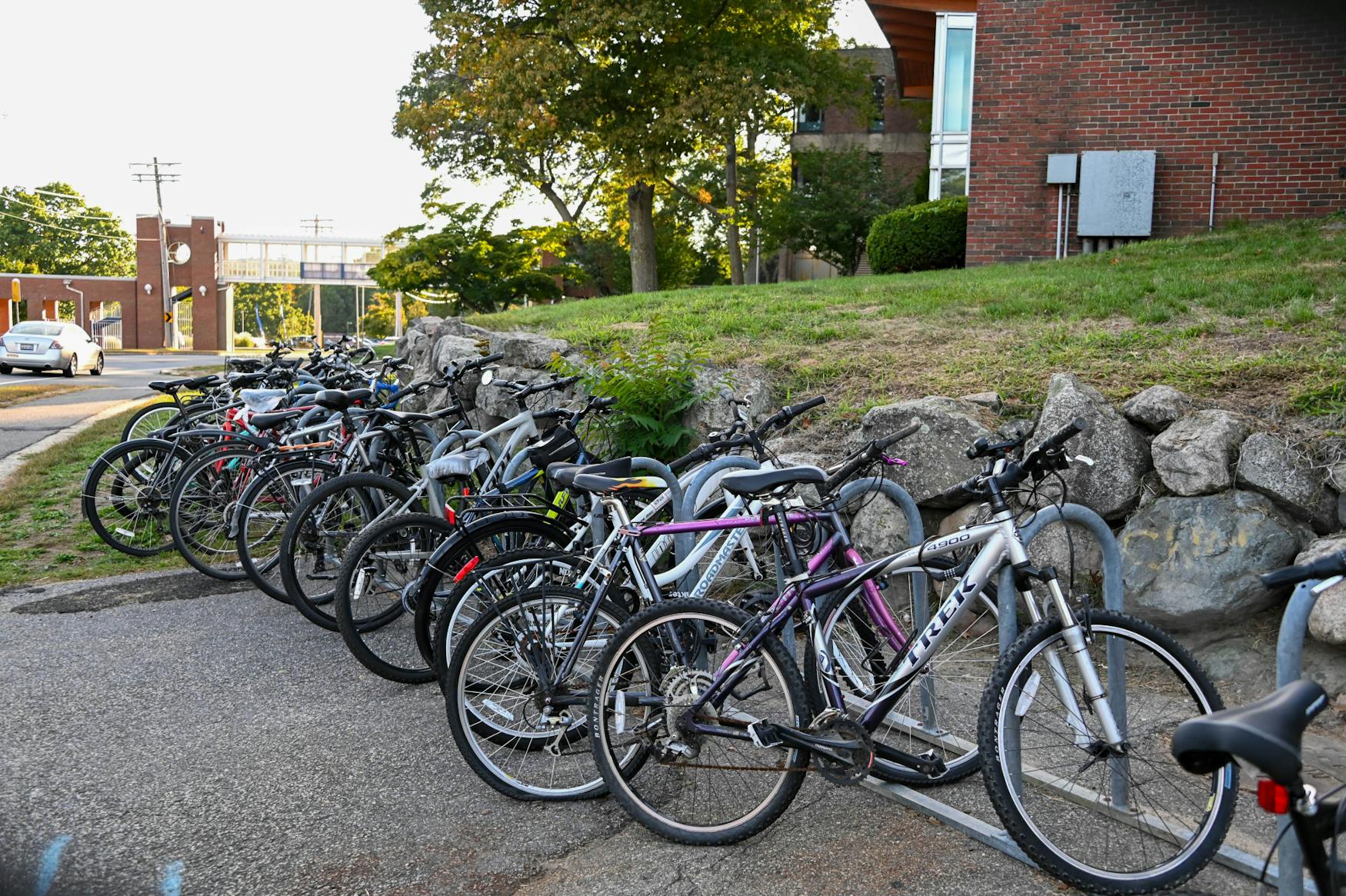Bike share program may be coming to Brandeis next year
One Brandeis student’s passion for a bike friendly campus turns into action.
More than 15 years ago, Brandeis University had a bike share program that provided students with day-long bike rental services. Prof. Emerita Lara Goldin (ENVS) started DeisBikes in 2009 with students from her “Greening the Campus and Community" class. The program stopped about 10 years ago, but one Brandeis student is looking to revive it.
Allan Feldman ’26, a bike enthusiast, has been riding his bike to and from school since middle school. He has continued this habit since coming to Brandeis, especially last year when he lived in the Charles River Apartments and “didn’t want to rely on the shuttle.” Though the apartments are considered on-campus housing, they sit outside of all campus buildings and activities, separated by the commuter rail train tracks.
According to Feldman, riding a bike on campus was not easy. He quickly realized it was difficult to find a bike rack on campus.
Comparable universities like Tufts University and Worcester Polytechnic Institute both have student-led bike share programs that were founded in 2011 and 2017 respectively. Feldman hopes to implement a similar program at Brandeis.
“I noticed there was a lack of accessibility for commuters,” Feldman said in a Sept. 27 interview with The Justice. “My first goal was simply to increase the bike accessibility on campus, to encourage a more bike culture on campus”
In this pursuit, Feldman learned about DeisBikes through speaking with staff of the Brandeis Library, the Department of Student Affairs and the Department of Public Safety. The program, which was student led, operated and maintained a fleet of more than 60 bikes out of the Shapiro Student Center. According to Feldman, the share program dissolved because of a “lack of a longevity plan” and because there was a reliance on volunteers to conduct bike repairs. After DeisBikes’ founders graduated, there was no one available to maintain the bikes, and ultimately they were “left to rot,” Feldman said.
“I learned there was actually a presence of a bike share and I thought ‘why can’t I just revive this’ because it seemed to align with my goal of creative accessibility for commuters on campus,” he said, retelling the moment he wanted to expand the project beyond getting more bike racks on campus.
Feldman is looking to have a collection of 28 bikes, bike locks and helmets available for students to rent. He shares that during the program’s infant stage rentals will be limited to 24 hours —with no distance restriction — but eventually will offer semester-long rentals.
To avoid a downfall similar to the one faced by the DeisBikes organizers, Feldman expressed the importance of being in discussion with the Brandeis Library, the Office of Student Affairs, Public Safety and the campus operations department. He anticipates bikes to be housed in proximity to the library, where the bikes can be checked in and out, , similar to the process for how books, laptops and umbrellas are able to be checked out. The library is also a “more student central” location according to Feldman, making it a more consistent and reliable space for the program to be housed.
“A big part of the SCC is that we’re not going to know how that is going to change,” Feldman said, reasoning why the SCC was a failed location for DeisBikes. “Whereas in the library, we know things will stay the same.”
As for repairs and supplying of the bikes, Feldman shared that there is discussion of working with local bike shops that will provide full tune-up each semester and any additional repairs throughout the year. Additionally, a long term bike share student team would be formed and trained to understand the software needed to track bikes should they be checked out beyond the rental time. Currently, it is unclear how the program will be funded or how much it will cost. In 2009, the Student Union unanimously passed a $1,305 grant to assist with the startup costs of DeisBikes. However, to start a program like this can be very expensive. For example, Tufts Bikes was able to receive a $50,000 grant from the university for their program that initially consisted of 30 bikes.
This initiative comes during a time where the University is cutting back on staffing and departments. When asked if the University would be willing to financially support the programs, Feldman remained optimistic.
“I would imagine that, if they cared about making a sustainable environmentally friendly campus, this should be one of their priorities,” Feldman expressed, emphasizing Brandeis’ close proximity to bike friendly cities like Somerville and Cambridge. “The benefits of the program outweighs the cost, because the impact of the program like this would create a transformation in the University that I think would serve for decades to come.”
An interest form has been circulating around the student body for the last couple of weeks, but the program would not be in full swing until the 2025-26 academic year, Feldman said.



Please note All comments are eligible for publication in The Justice.